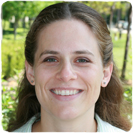Online Learning and Teaching

This semester’s Professional Development Series focuses on online teaching and learning. We have selected topics that are particularly relevant to LLL faculty teaching or considering teaching online. All presenters have a background in online teaching or designing online experiences or environments for online learning. Some of the topics that will be discussed are: online and hybrid course design, assessment, interaction design and technology tools to support online instruction. Presentations will include examples and time for questions. Some presentations will be online, so attendees will have the opportunity to experience synchronous online interactions.
Web Audio Utility (WAU)
January 18, Friday • 1.30p – 2.30p • PDL (Moore 155B) • Richard Medina
In this workshop Richard Medina will cover how to create WAU courses and activities. This workshop is ideal for first-time WAU users and experienced users who need a refresher course after a lovely winter break. The workshop will be offered again at mid-semester.
Hybrid Course Design
February 8, Friday • 1.30-2.30 • Moore 258 • Ulrich Kozok • presentation pdf
 The Indonesian Language Program has been offering hybrid courses for almost ten years. In the course of time we have developed models for online/offline learning that work well under the UHM umbrella, and suit both traditional on-campus students as well as distance learners.
The Indonesian Language Program has been offering hybrid courses for almost ten years. In the course of time we have developed models for online/offline learning that work well under the UHM umbrella, and suit both traditional on-campus students as well as distance learners.
Technology & Distance Programs
February 22, Friday • 1.30p -2.30p • Moore 258 • Paul McKimmy & Ariana Eichelberger • presentation pdf


Paul McKimmy, director of technology and distance programs at UH Manoa’s College of Education, and Ari Eichelberger, Instructional Designer the College of Education Technology & Distance Programs, will give an introduction to Technology & Distance Programs office in the UHM College of Education, including their Distance Course Design & Consulting group (DCDC). They will show some example courses, including use on mobile devices. Finally, they will discuss the instructional design process and how DCDC marries it to the visual and technical design of courses.
Online Learning Designs: A Look through a Community of Inquiry Lens
March 8, Friday • 1.30p – 2.30p • Moore 258 and online • Anne O’Bryan • presentation pdf • presentation video
 Anne O’Bryan received her PhD in Applied Linguistics and Technology from Iowa State University. She has taught online courses in the areas of linguistics, teacher education, and online learning. She is currently an online faculty member at American Public University Systems, Colorado State University-Global Campus, and Iowa State University. Her presentation draws upon the Community of Inquiry framework (Garrison, Anderson & Archer, 2000), which identifies crucial elements for successful online learning experiences. Examples from online courses in applied linguistics and online learning will be used to illustrate how this framework can facilitate course design and critical inquiry in online classes.
Anne O’Bryan received her PhD in Applied Linguistics and Technology from Iowa State University. She has taught online courses in the areas of linguistics, teacher education, and online learning. She is currently an online faculty member at American Public University Systems, Colorado State University-Global Campus, and Iowa State University. Her presentation draws upon the Community of Inquiry framework (Garrison, Anderson & Archer, 2000), which identifies crucial elements for successful online learning experiences. Examples from online courses in applied linguistics and online learning will be used to illustrate how this framework can facilitate course design and critical inquiry in online classes.
Ideal Classmates and Reciprocal Idealizing through Critical Participatory Looping (CPL) in Socially Intelligent Dynamic Systems (SINDYS)
March 22, friday • 11.30p – 12.30p • Moore 155A • Tim Murphey, Professor of English at Kanda University of International Studies. • presentation pdf • presentation video
I will describe some easy action research/activity done in the spring of 2012 with 488 students in 4 Japanese universities in the Tokyo area. It had a big impact on our students and could easily be replicated in other classrooms, in almost any school situation.
We asked the students:
Q39 Please describe a group of classmates that you could learn English well with. What would you all do to help each other learn better and more enjoyably? いっしょに親しく英語を学ぶクラスメートのグループがどのようなものかを想像して書いてみて下さい。より上手に楽しく助け合って学ぶにはどうすればいいでしょうか。(Students could answer in Japanese, English, or both.)
Their answers were so interesting that we compiled them anonymously on a handout and gave it back to the class for discussion. The 488 comments were then coded into 16 descriptors, that I will share with you during this presentation, and further researched in a survey with the same students. The positive results can be understood partially through the field of Appreciative Inquiry, emotional contagion, and the altruistic turn, which I will describe. Teachers will be given practical ideas for doing these and similar things in the classroom. In the meantime, I dare ask you (And dare you to ask others!), “What do people do to help you have a great day, a good class, and a meaningful life?”
Using Ning Social Network Environment for a Blended Graduate Level Course: Ecology, Pedagogy and Design
April 5, Friday • 1.30p – 2.30p • Moore 258 • Dongping Zheng, Ph.D Assistant Professor SLS UHM • presentation pdf
 This presentation showcases the process of design and participation of a graduate level course offered in the Department of Second Language Studies, SLS680P: Tasks, Activities, and Learning Environments. Grounded in the ecological dialogical framework of learning and the concept of design of learning environments, the presentation intends to fulfill 3 goals: 1) to demonstrate how a course can be dynamically designed to foster a distributed cognitive system/community in which both students and the instructor develop expertise reciprocally; 2) to further explain how to wisely utilize publicly available social networks to facilitate learning and augment community building; and 3) to share practical tips on how to organize a blended learning course that can cultivate optimal learning experiences in online, offline and face-to-face environments.
This presentation showcases the process of design and participation of a graduate level course offered in the Department of Second Language Studies, SLS680P: Tasks, Activities, and Learning Environments. Grounded in the ecological dialogical framework of learning and the concept of design of learning environments, the presentation intends to fulfill 3 goals: 1) to demonstrate how a course can be dynamically designed to foster a distributed cognitive system/community in which both students and the instructor develop expertise reciprocally; 2) to further explain how to wisely utilize publicly available social networks to facilitate learning and augment community building; and 3) to share practical tips on how to organize a blended learning course that can cultivate optimal learning experiences in online, offline and face-to-face environments.
Focus on pedagogy – Course showcase
April 12, Friday • 1.30p – 2.30p • Moore 258
 Developing online courses can feel intimidating to instructors who
Developing online courses can feel intimidating to instructors who
feel uncertain about their technological expertise. However, a variety
of online tools and freeware have made preparing online classes easier
than many people anticipate. This talk will focus on tools utilized by
the School of Social Work in developing both synchronous and
asynchronous classes, as well as discuss the amount of time involved
in creating these courses.
Rebecca L. Stotzer, MA, MSW, PhD
Associate Professor and Director of Distance Education, UH School of Social Work


